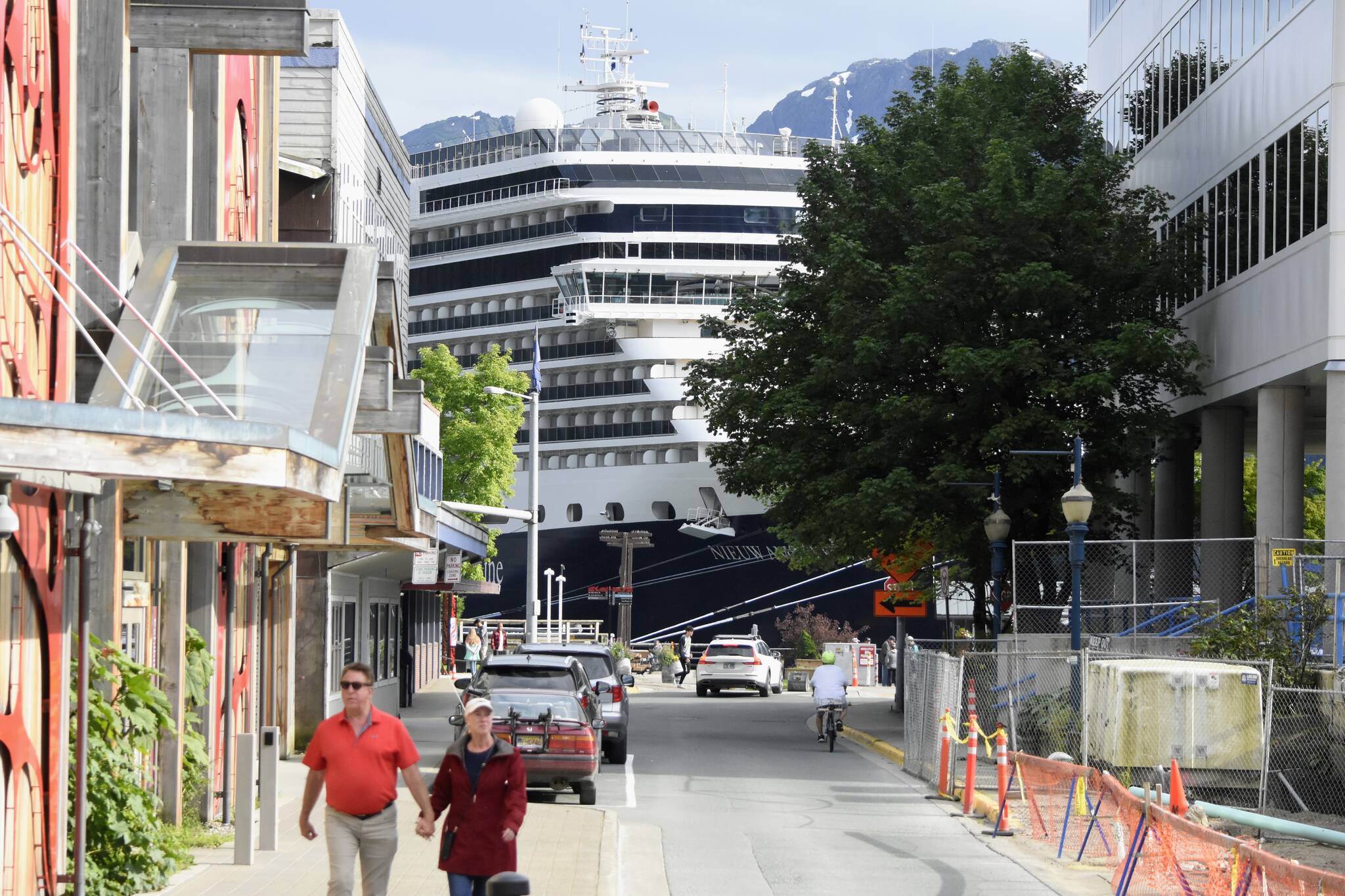Finding workers is likely to be the biggest challenge for Juneau’s post-pandemic economic recovery, said Jim Calvin, senior economist at McKinley Research Group, and the state and nation are facing the same challenges.
In a presentation to the Greater Juneau Chamber of Commerce Thursday, Calvin said McKinley, formerly known as McDowell Group, recently completed a report on the impact of the COVID-19 pandemic on Juneau’s economy for the City and Borough of Juneau. The results of that study show how the lack of a cruise ship season impacted Southeast Alaska particularly hard in terms of job loss.
Employers are going to have a hard time meeting the needs of their customers if the labor shortage continues, Calvin told the chamber, which may hamper the city’s overall economic recovery.
Calvin said the impacts shown in the report were “dramatic” and still unfolding for many members of the community.
“The rather academic approach that we take depersonalizes the impacts, the hardships,” Calvin said. “But there’s a profound human story behind these.”
According to the report, Juneau lost 12% of its employment base in 2020, or 2,085 jobs, and lost about $304 million in business sales.
Industries related to cruise ships were most impacted, Calvin said, though service industry jobs and restaurants also saw high rates of job loss. The sightseeing sector saw employment in 2020 drop 85% from the same period in 2019, according to the report, and business sales dropped by 29% in April through June of 2020, representing nearly $140 million in lost sales.
The top three industries impacted by the pandemic were tour providers, jewelry stores/galleries and gift shops. the report said. The only industry that saw job growth, Calvin said, was construction.
[‘This is something that unites us all’: Alaskans help refugees resettle]
The Kensington Gold Mine and Green’s Creek Mine collectively spent about $4 million in the community in 2020, Calvin said, as they needed to quarantine workers in local hotels. That gave extra money to struggling hotels and restaurants that normally cater to tourists.
“A nice little shot in the arm,” to the local economy, Calvin called it.
There was also the more than $300 million that came to the city in the form of federal relief, “and more to come,” Calvin said.
“It’s hard to imagine a world without that money finding its way into the pocketbooks of Juneauites,” Calvin said.
Businesses in Juneau received $100 million in Payroll Protection Program funding, the report found; $30 million in economic injury loans, $31 million for health care provider relief; and $13 million in restaurant revitalization funds.
“In general we know that it was relatively younger people who suffered job losses,” Calvin said. “Younger than the average in the labor force, and by and large lower wage (workers).”
The City and Borough of Juneau received $127 million, according to the report, $16 million of which was spent on business and extreme hardship grants. There were also unemployment benefits from various sources, including local and federal governments, which according to the report gave more than $6 million to Juneau residents in May 2020 alone.
But businesses were still struggling to find workers, Calvin said, and one-third of Juneau’s private-sector workers are non-resident. But many of the labor challenges Juneau faces were in place before the pandemic, Calvin said, chief among them the lack of child care.
In an interview with the Empire following his address to the chamber, Calvin said local businesses were still struggling, and Juneau’s economic recovery was far from over.
The report was scheduled to be presented to the CBJ Assembly Finance Committee in September but was rescheduled to the Nov. 3, meeting.
“We’re not out of the woods yet, and there’s more rough water ahead for the economy and many in the business community,” Calvin said. “We should do what we can to support each other and get past this.”
• Contact reporter Peter Segall at psegall@juneauempire.com. Follow him on Twitter at @SegallJnuEmpire.

